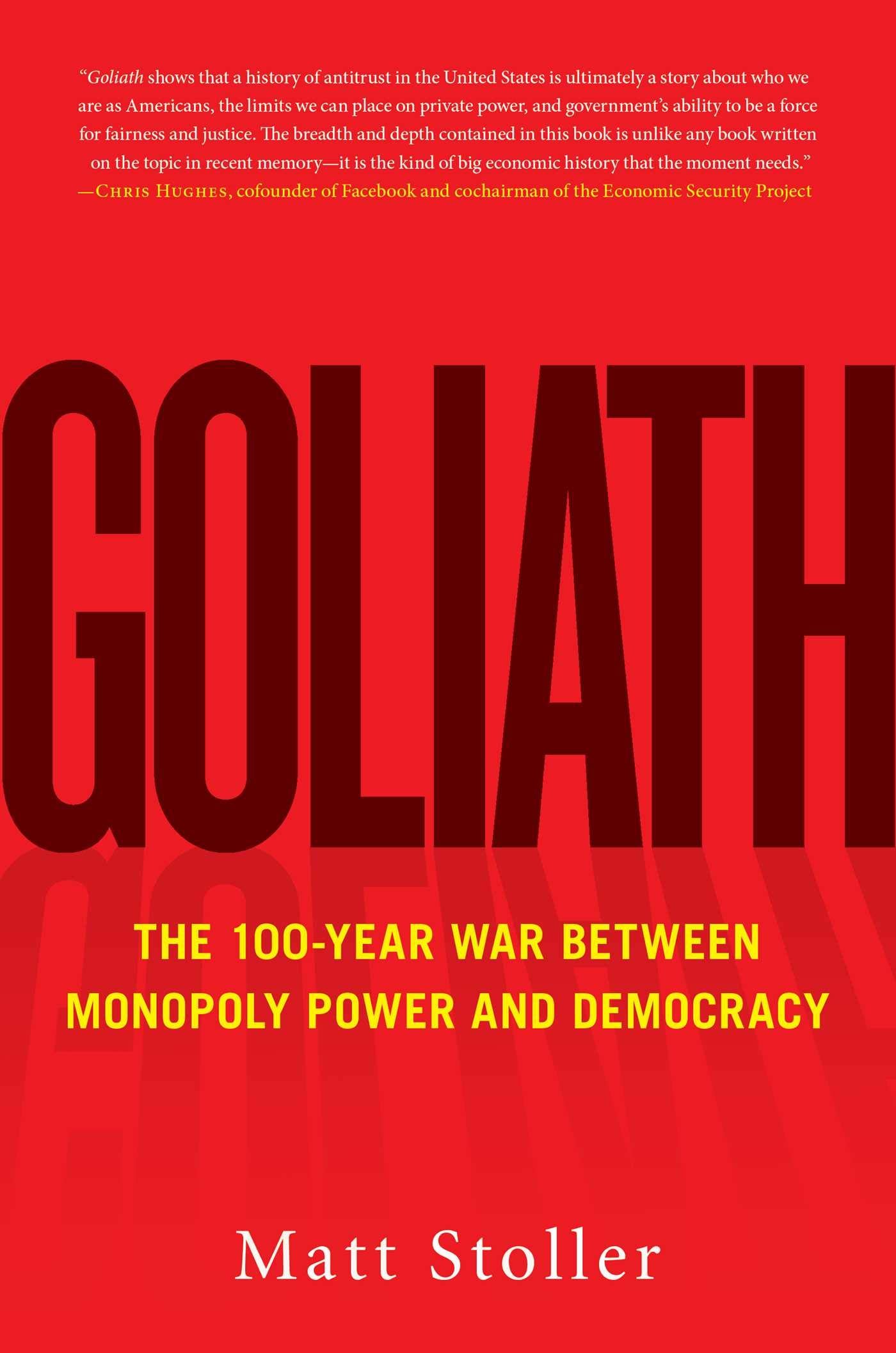
Goliath is not the kind of book I usually read. In many ways, I did not enjoy listening to it (I often “read” by listening to audiobooks). That said, it is essential reading for anyone who cares about people. So hopefully that means all of us.
Why is Goliath Essential Reading
Goliath tells the history behind saving both the working class and democracy from the corporate monopolies of the Industrial Revolution. It reveals the economics behind our post-WWII social boom. But then history cycles back. Here Stoller reveals how the banks took over both the Republican and Democratic parties. In doing so, as a nation, we returned power (of both industry and governmental policy) to the corporate elites.
Oddly, while the content was not my favorite, I found myself needing to learn more. As a result, I did more side research than I do with most books. In the process I learned more than I ever wanted to know about economics (including the Chicago vs. Austrian schools of neo-liberalism) and anti-trust laws. I saw how consumerism is a tool of oppression.
But this book is not just about big concepts. It is about the present moment. It helps make sense of a world with Covid-19 and social distancing. There are reasons we lack the means of production to get the PPE our medical professionals need. Corporations begging for bailouts is a consequence of choices they have made.
There is Another Way
The other day, a friend asked, “Is there another way to build our economy?” It is a fair question. After all, the United States has not embraced a pro-worker economic philosophy during my lifetime. At best we hear about Republican, Democratic, and Libertarian variations of neo-liberalism. But Stoller reveals that their are alternatives.
To that end, this is not a Republican book nor a Democratic one. It is a populist book. It offers a vision of how we can create a Democratic society where the means of production remains in the private sector (aka capitalism), but in a way that does not exploit the majority for the sake of the minority.
Ultimately, this book gives me hope that there is another way. As a follower of Jesus, there is an unexpected resonance to these alternatives and the way of living Jesus invites us to when he says, “Give unto Caesar.”
For a regular does and application of the concepts learned from Goliath, check out Matt Stoller’s email list, BIG.